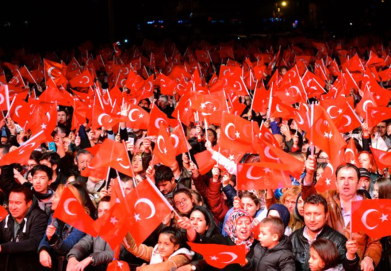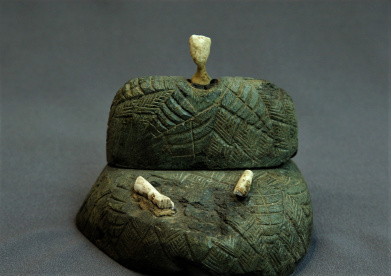Art Preserves Historical Truth - Moscow and Ashgabat Hosted a Musicologists' Conference
29.10.2025 | 07:30 |On October 27, the International Scientific and Practical Conference "The Face of War in the Mirror of Art" was held in a hybrid format in Moscow, in the concert hall of the Sheet Music and Sound Recordings Department of the Russian State Library (RSL). The forum, dedicated to reflecting the tragic and heroic events of the Great Patriotic War in the musical arts of Russia and Turkmenistan, was held as part of the IX Nury Khalmamedov Moscow International Arts Festival "Sounds of the Dutar."
The conference featured 11 papers from leading figures in music culture, art historians, and researchers from both countries.
The event began with the donation of music and sheet music to the RSL collection, highlighting the long-term cultural collaboration. Among the books donated were “Music of Peace, Music of Friendship and Brotherhood” by the National Leader of the Turkmen People Gurbanguly Berdimuhamedov, “The Theory of Turkmen Music” by Sukhan Tuyliev, and sheet music collections by Mamed Guseynov.
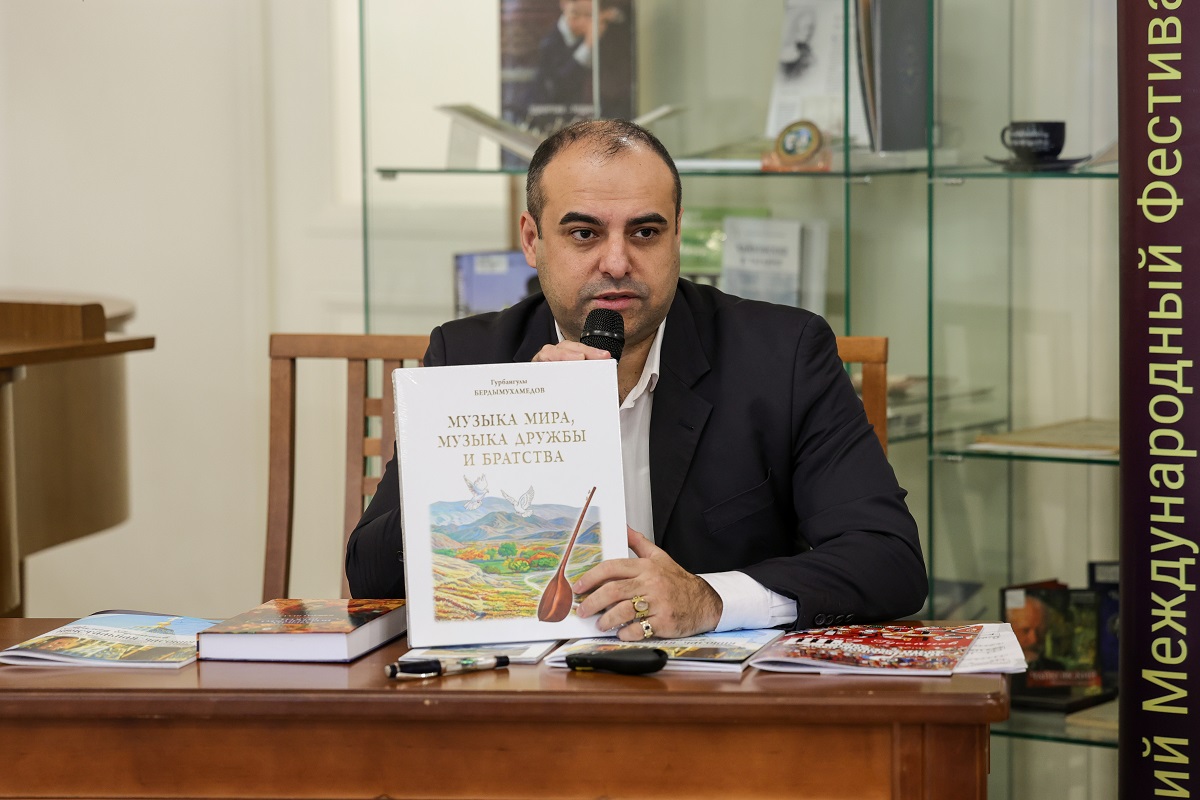
Alla Semenyuk, Head of the Music Publications and Sound Recordings Department at the Russian State Library, warmly thanked the organizers for preparing the forum in honor of such a significant date—the 80th anniversary of Victory in the Great Patriotic War. She noted the exceptional importance of this event for the global community and the development of cultural dialogue, as well as the preservation of historical memory for future generations.
Composer and Artistic Director of the "Sounds of the Dutar" Arts Festival, Mamed Guseynov, emphasized that the festival's overarching goal is to revive the international dialogue of cultures, integrate national music into the treasury of world art, and foster collaboration between musicians from different countries. A distinctive feature of the festival is its desire to demonstrate the mutual enrichment of the arts, based on ethnocultural traditions and their connection with European and world culture.
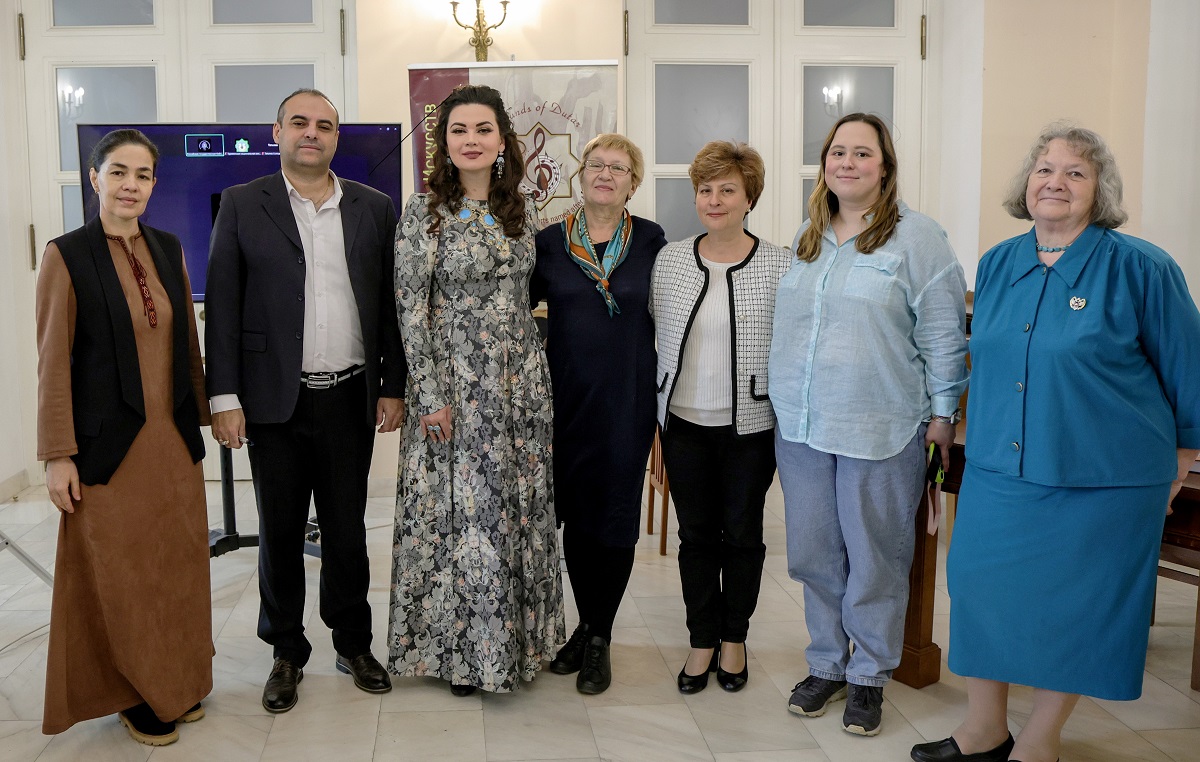
A striking highlight of the conference were the musical numbers, which set a high emotional tone. Daria Guseynova, an artist with the Moscow Helikon Opera Musical Theater, performed "Ode to a Hero" to the verses of Khadzhi Kakaliev, accompanied by composer Mamed Guseynov.
A virtuoso performance by Honored Artist of Russia, violinist Leonora Dmiterko, featuring works by veteran composers Andrei Eshpai and Orazmukhamed Kurbanniyazov, preceded her talk about their dedication to art and their homeland during the war.
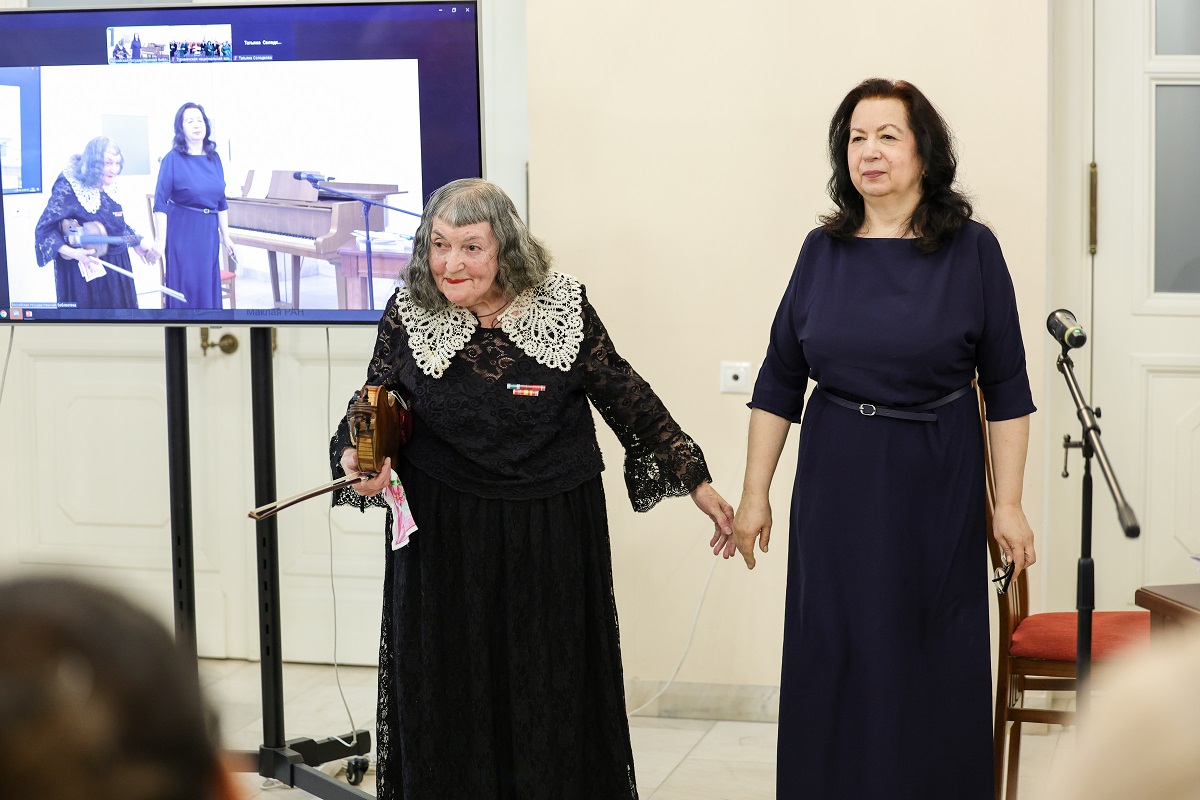
The conference moderator, GITIS Senior Lecturer Evgeny Volkov, introduced the participants to a program of music by the now virtually unknown composer Alexander Mosolov: "Happy Journey" (1941), Vali's Aria from the opera "Signal" (1942), and the famous "Song" to the verses of A. Surkov (1942). The vocals were performed by Polina Veres, Elena Druzhinkina, and Maria Mityureva. Participants were struck by a historical fact: Mosolov's music for the legendary lines "The fire is blazing in the cramped stove..." was written first, but the music of another, more "reliable" composer was officially promoted.
The scientific section featured unique presentations from various fields. Nadezhda Dubova, a prominent Russian anthropologist and head of the Russian-Turkmen Margiana Archaeological Expedition, presented a report on Turkmenistan's contribution to the development of science during the war, noting that the republic hosted over 300,000 evacuated scientists and teachers from leading Soviet universities.
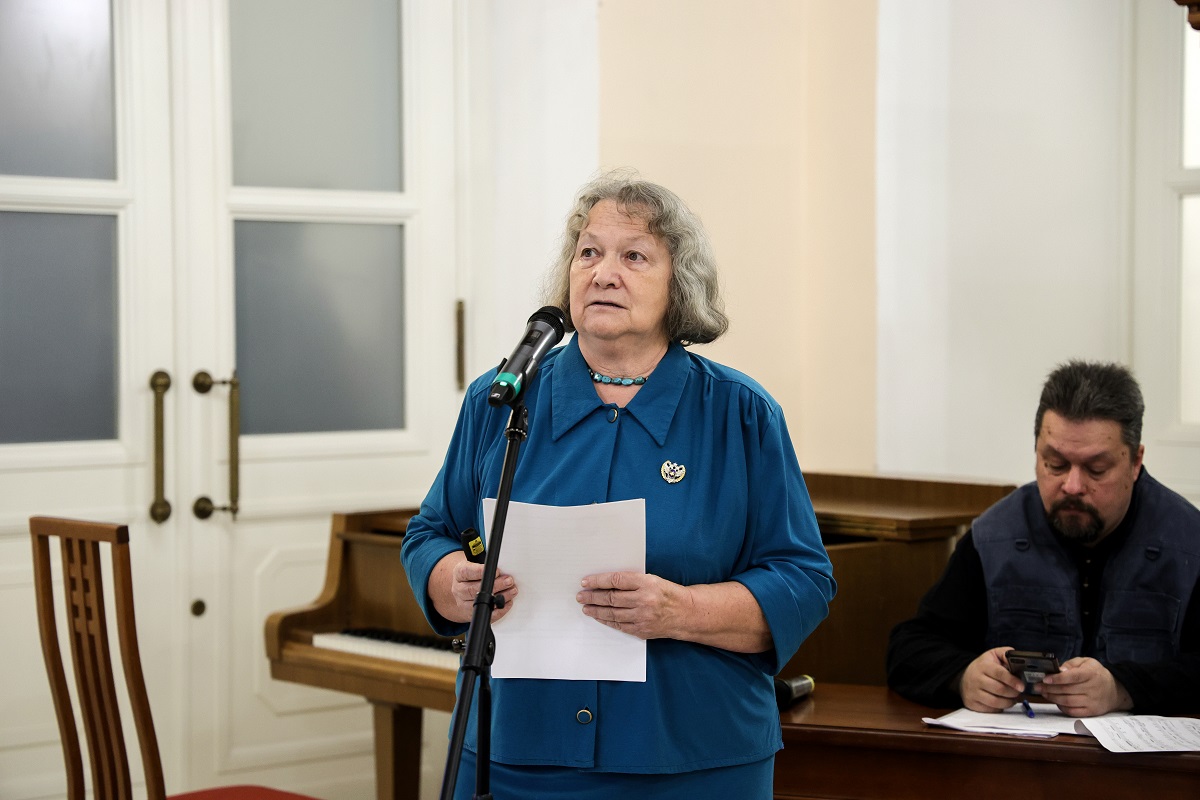
A large segment of papers was presented from Turkmenistan, moderated by Elena Osipova, Associate Professor at the Maya Kulieva Turkmen National Conservatory. Turkmen musicologists focused on the creative portraits and works of composers reflecting the wartime past. They discussed the works of Chary Nurymov, as well as the contributions of classics Nury Mukhatov, Aman Agadzhikov, and Rejep Rejepov to cinema and national music.
Particularly noteworthy was the presentation by young composer Kerim Dzhumagulyev, who shared his experiences working on a monologue based on Berdimuhamed Annanav's poem "Ak Gerek," which is included in the novel "Döwlet Guşy" by National Leader of the Turkmen People Gurbanguly Berdimuhamedov. The audience was treated to a recording of this romance performed by People's Artist of Turkmenistan Atageldy Karyagdyev.
The final report, presented by Nikolai Larionov and Tatyana Solodkova from St. Petersburg, was devoted to the phenomenon of intercultural dialogue in Russian literature. He emphasized that literary works serve as a universal basis for opera, ballet, music, and film, and that their language, enriched by cultural diversity, possesses universal properties and requires no translation.
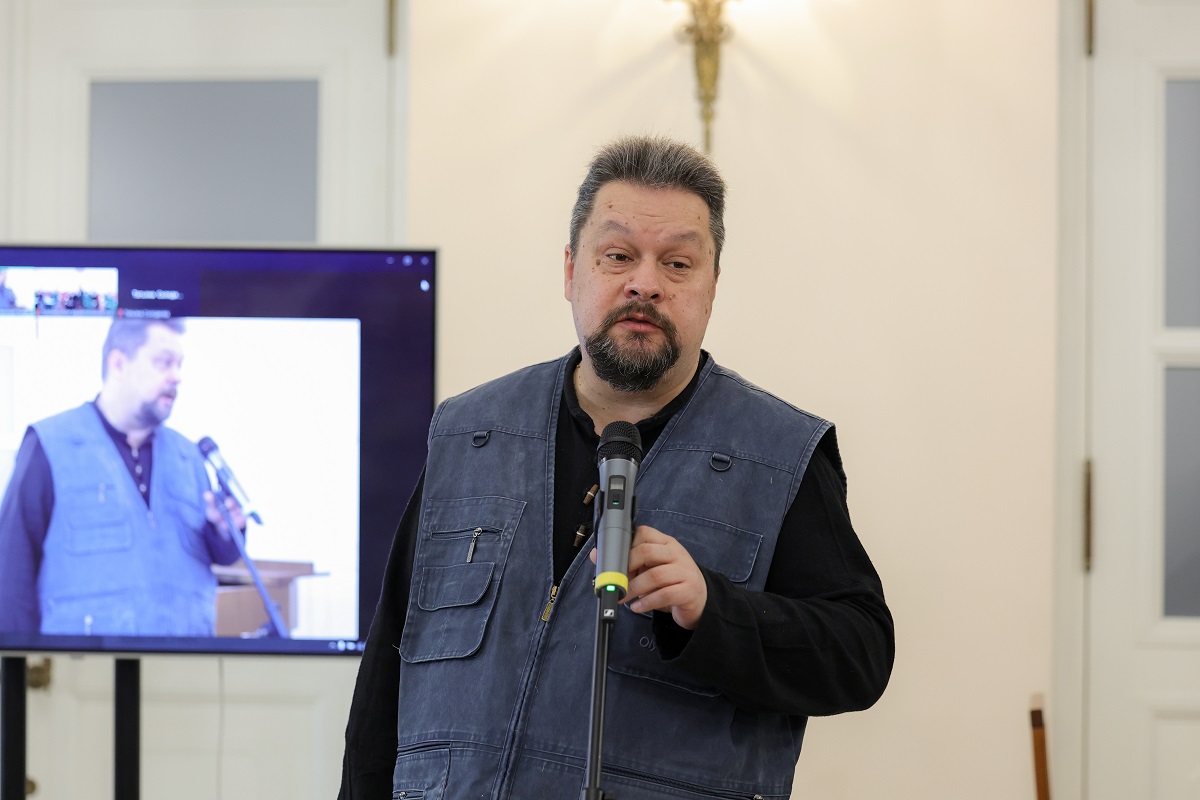
The international scientific and practical conference "The Face of War in the Mirror of Art" demonstrated that art, as the highest form of the human spirit, is the most reliable custodian of historical truth.
The sacred memory of the Great Victory has no expiration date, and it is through music, literature, and science—shared by the peoples of Turkmenistan and Russia—that this memory attains immortality.
Held under the banner of brotherhood and cultural enrichment, the conference clearly demonstrated that shared historical values, forged by the blood and heroism of our ancestors, remain a strong and inviolable foundation for the strategic partnership between the two countries and ensure the transmission of lessons of courage and humanism to future generations.
ORIENT


